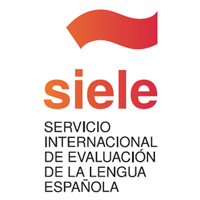¿Os habéis preguntado alguna vez qué estructuras usamos en español para expresar probabilidad o formular hipótesis? ¿Os parece mucho lío?
Os dejo a continuación una información que os puede ayudar a entender mejor estas estructuras y, para practicarlas, ya sabéis, os esperamos en Hablamos
| CON INDICATIVO | CON SUBJUNTIVO | ||
| -ESTOY SEGURO DE QUE -SEGURAMENTE -SUPONGO QUE -A LO MEJOR -IGUAL (*en la lengua coloquial) -LO MISMO (*en la lengua coloquial) |
están bien. se han ido a vivir juntos. fueron de vacaciones a Malasia. estaban muy contentos. |
-LO MÁS SEGURO ES QUE -ES PROBABLE QUE -ES POSIBLE QUE -PUEDE QUE |
esté enfermo. tenga problemas. venga pronto. |
| CON INDICATIVO Y SUBJUNTIVO | |||
| -POSIBLEMENTE -PROBABLEMENTE -TAL VEZ -QUIZÁ(S) |
está/esté enfermo. viene/venga más tarde. |
||
| CON FUTURO SIMPLE/FUTURO IMPERFECTO (para formular hipótesis sobre el presente) | |||
| HABLAR | APRENDER | ESCRIBIR | |
| Hablaré Hablarás Hablará Hablaremos Hablareis Hablarán |
Aprenderé Aprenderás Aprenderá Aprenderemos Aprenderéis Aprenderán |
Escribiré Escribirás Escribirá Escribiremos Escribiréis Escribirán |
Afirmamos algo: Marta está trabajando. Planteamos una hipótesis: ¿Estará trabajando? No creo. Estará viendo la tele. Invitamos al interlocutor a especular: ¿Dónde estará Marta? Estoy preocupada. |
| CON FUTURO COMPUESTO/PERFECTO (para formular hipótesis sobre el pasado vinculado al presente) | |||
| CANTAR | BEBER | VIVIR | |
| Habré cantado Habrás cantado Habrá cantado Habremos cantado Habréis cantado Habrán cantado |
Habré bebido Habrás bebido Habrá bebido Habremos bebido Habréis bebido Habrán bebido |
Habré vivido Habrás vivido Habrá vivido Habremos vivido Habréis vivido Habrán vivido |
Afirmamos algo: María ha ido al cine. Planteamos una hipótesis: Habrá ido al cine. Invitamos al interlocutor a especular: ¿Dónde habrá ido María? |
| CON CONDICIONAL SIMPLE (para formular hipótesis sobre el pasado) | |||
| HABLAR | APRENDER | ESCRIBIR | |
| Hablaría Hablarías Hablaría Hablaríamos Hablaríais Hablarían |
Aprendería Aprenderías Aprendería Aprenderíamos Aprenderíais Aprenderían |
Escribiría Escribirías Escribiría Escribiríamos Escribiríais Escribirían |
Afirmamos algo: Marta estaba trabajando. Planteamos una hipótesis: ¿Estaría trabajando? No creo. Estaría viendo la tele. Invitamos al interlocutor a especular: ¿Dónde estaría Marta? No fue a la fiesta. |
| CON CONDICIONAL COMPUESTO (para formular hipótesis sobre un hecho pasado anterior a otro pasado) | |||
| CANTAR | BEBER | VIVIR | |
| Habría cantado Habrías cantado Habría cantado Habríamos cantado Habríais cantado Habrían cantado |
Habría bebido Habrías bebido Habría bebido Habríamos bebido Habríais bebido Habrían bebido |
Habría vivido Habrías vivido Habría vivido Habríamos vivido Habríais vivido Habrían vivido |
Afirmamos algo: La puerta de mi casa estaba abierta cuando llegué. Planteamos una hipótesis: Al llegar a casa y ver la puerta abierta, pensé que habría entrado un ladrón en casa. Invitamos al interlocutor a especular: ¿Qué habría pasado cuando no estaba en casa? |






